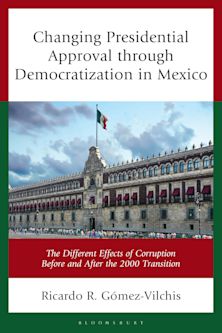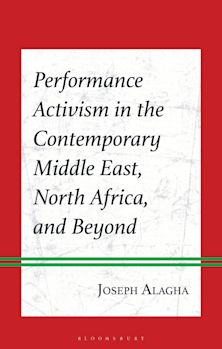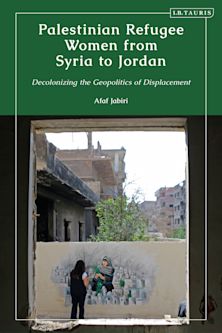Democratic Institutions in Guatemala
Theory and Practice
Democratic Institutions in Guatemala
Theory and Practice
This product is usually dispatched within 1 week
- Delivery and returns info
-
Free CA delivery on orders $40 or over
Description
Democratic Institutions in Guatemala: Theory and Practice advances knowledge about Guatemala's democracy by embedding the country in recent conceptual and theoretical work in comparative politics. This volume sheds light upon the stubborn realities and challenges afflicting Guatemalan democracy during the post Peace Accords era. Each chapter delves into the main democratic institutions, informal practices, and players shaping the operative political game: elections, Congress, the Judiciary, the high courts, presidentialism, criminal actors, political parties, the political left and political right, and the peak business association CACIF. This book seeks to escape the perils of parochialism by placing the country within larger scholarly debates and paradigms.
Table of Contents
Introduction: Guatemalan Elections: Ineffectual Instruments of Democratization Omar Sanchez-Sibony
Chapter 1: The Perils of Presidentialism: Is Linz Right about Guatemala? Christopher A. Martínez
Chapter 2: Illicit Networks in Guatemala’s Congress: The Criminal Subversion of Democracy Harald Waxenecker
Chapter 3: Congruence and Representation in Guatemala Annabella España-Nájera and Mar Martinez Rosón
Chapter 4: The Waves of Judicialization of Politics in Guatemala Jonatán Lemus
Chapter 5: Purposeful Weakness: How Power Flows Through and Around Guatemala’s Legal System Rachel E. Bowen
Chapter 6: Citizens’ Political Culture and Democracy in Guatemala Dinorah Azpuru
Chapter 7: The Criminal Threat to Democracy in Guatemala Regina Bateson
Chapter 8: Why No Parties in Guatemala? Lessons from Party-Building Theory Omar Sanchez-Sibony
Chapter 9: The Struggles of Guatemala’s Political Left Post Peace Accords Michael E. Allison
Chapter 10: Guatemala’s Political Right: Electoral and Non-Electoral Strategies Omar Sanchez-Sibony
Appendix: Additional Material for Chapter 3
About the Contributors
Product details
| Published | Jan 22 2025 |
|---|---|
| Format | Hardback |
| Edition | 1st |
| Extent | 496 |
| ISBN | 9781666910063 |
| Imprint | Lexington Books |
| Illustrations | 17 Charts, 13 Graphs, 17 Tables |
| Dimensions | 229 x 152 mm |
| Publisher | Bloomsbury Publishing |
Reviews

ONLINE RESOURCES
Bloomsbury Collections
This book is available on Bloomsbury Collections where your library has access.


































